Abstract
We investigated whether work-related psychologic stress--defined as work characterized by both high psychologic demands and limited control over the response to these demands--increases a woman's risk of delivering a preterm, low birthweight infant. We studied 786 employed pregnant women included in the National Longitudinal Survey of Labor Market Experience, Youth Cohort (NLSY), a nationally representative sample of 12,686 young adults. Data concerning work status, job title, and other factors affecting pregnancy outcome were obtained from the NLSY. Assessment of job experience was based on job title, using an established catalogue of occupation characteristics. After accounting for the physical exertion entailed in a job, occupational psychologic stress as measured by job title was not associated with preterm, low birthweight delivery for the sample as a whole (Relative risk = 1.16, 95% confidence interval .45, 2.95). For those women who did not want to remain in the work force, work-related stress increased their risk of experiencing this outcome (RR = 8.1, 95% CI 1.5, 50.2). Personal motivation toward work, as well as the physical effort of work, should be considered in evaluating the impact of a job's psychologic characteristics on pregnancy outcome.
Full text
PDF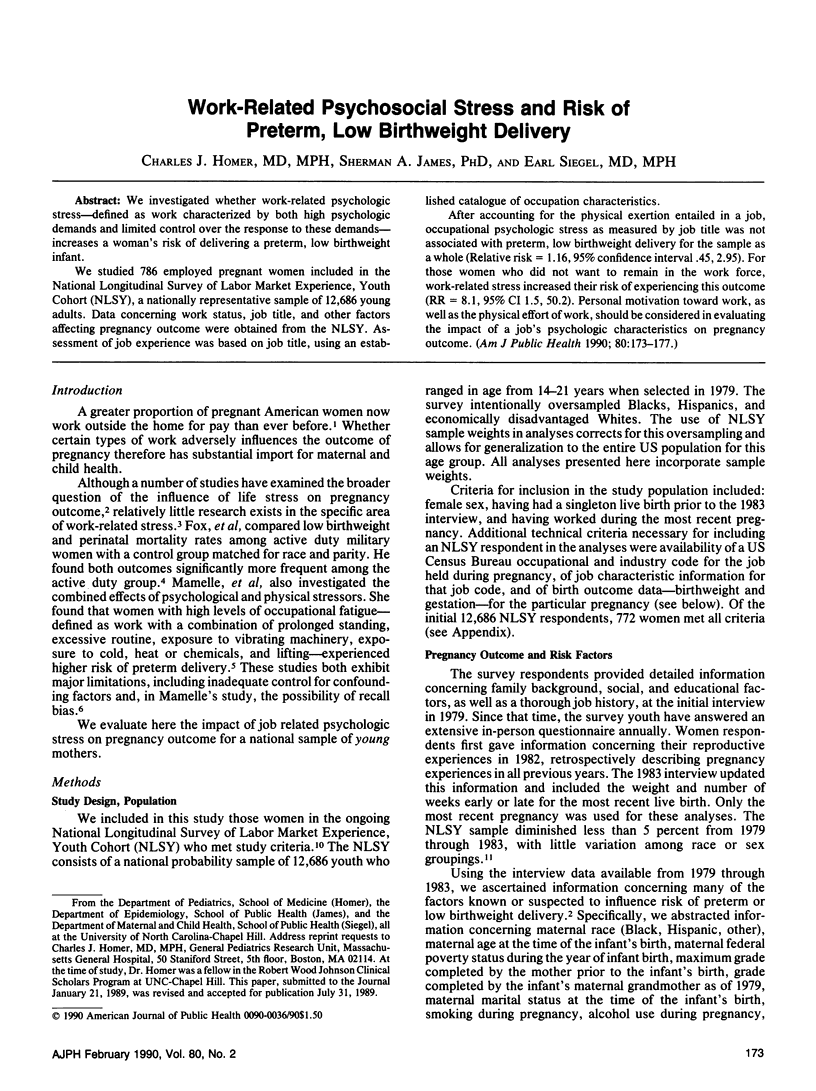
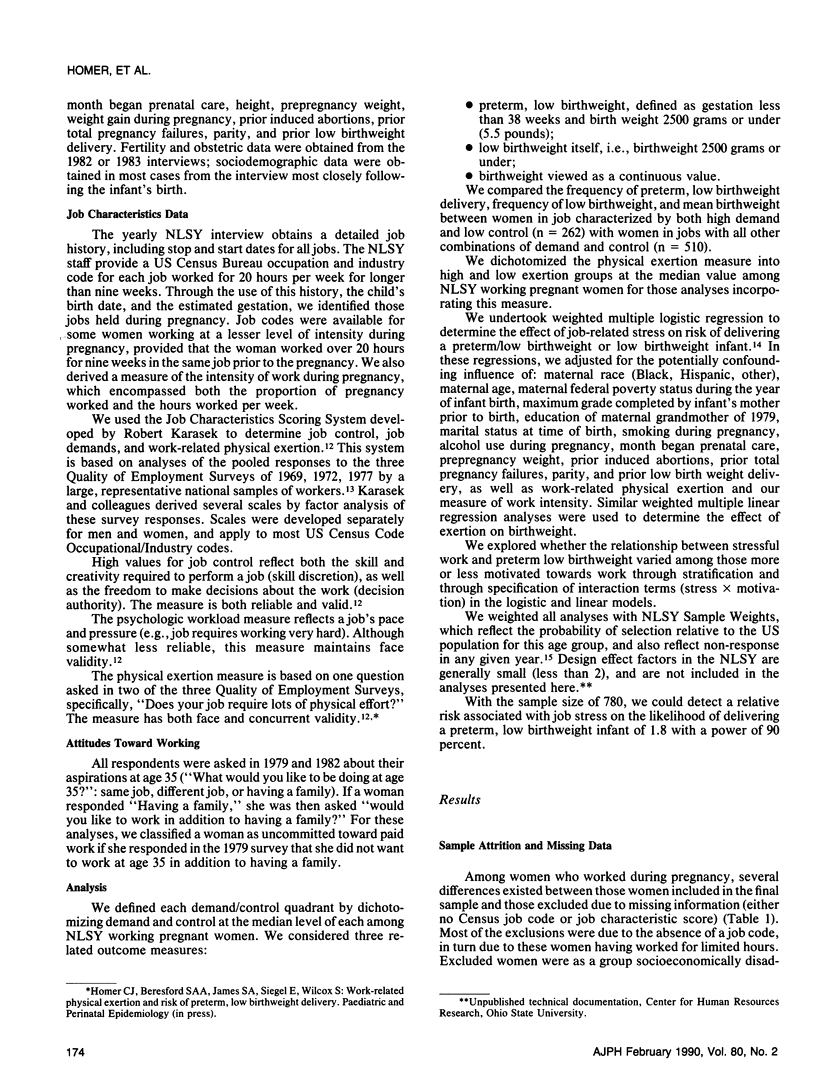
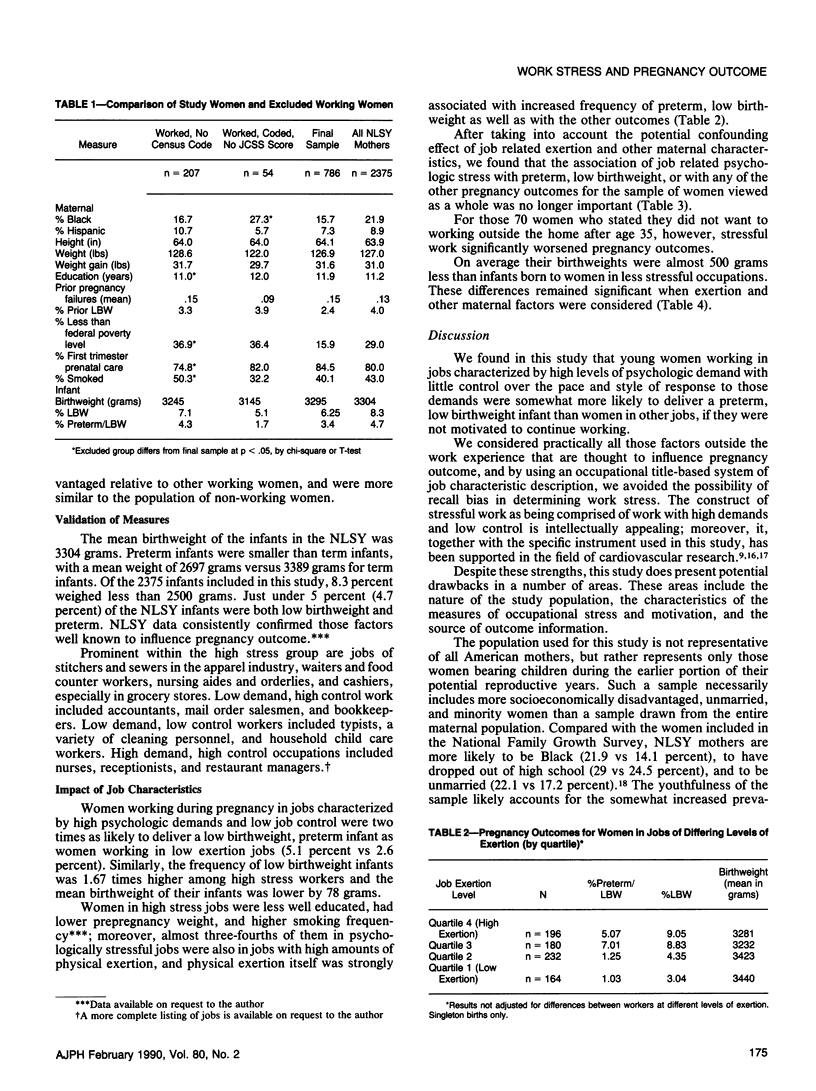
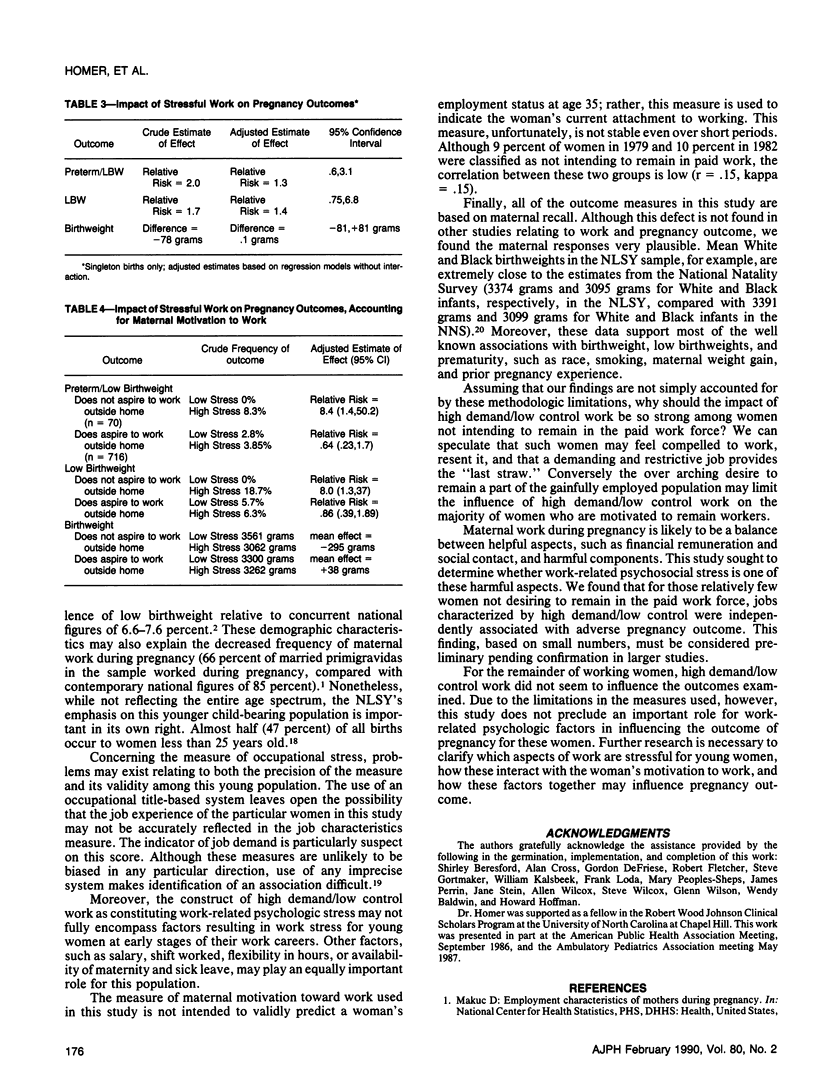
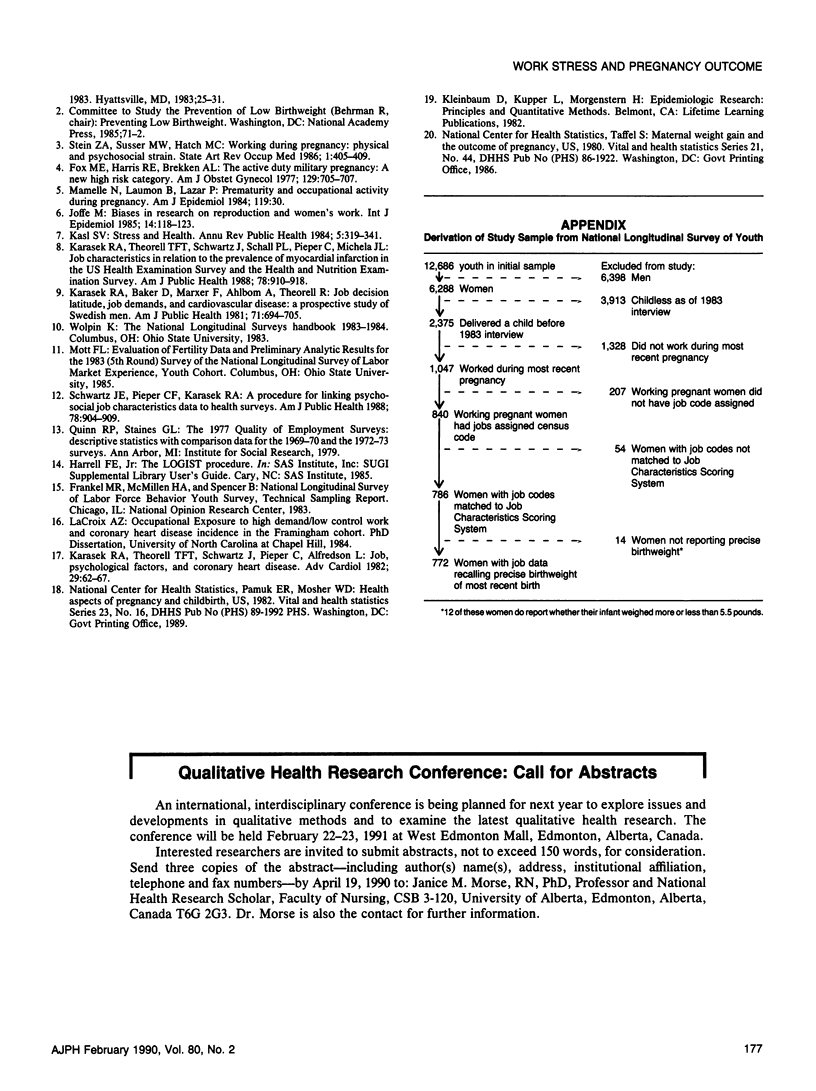
Selected References
These references are in PubMed. This may not be the complete list of references from this article.
- Fox M. E., Harris R. E., Brekken A. L. The active-duty military pregnancy: a new high-risk category. Am J Obstet Gynecol. 1977 Nov 15;129(6):705–707. doi: 10.1016/0002-9378(77)90662-7. [DOI] [PubMed] [Google Scholar]
- Joffe M. Biases in research on reproduction and women's work. Int J Epidemiol. 1985 Mar;14(1):118–123. doi: 10.1093/ije/14.1.118. [DOI] [PubMed] [Google Scholar]
- Karasek R. A., Theorell T. G., Schwartz J., Pieper C., Alfredsson L. Job, psychological factors and coronary heart disease. Swedish prospective findings and US prevalence findings using a new occupational inference method. Adv Cardiol. 1982;29:62–67. doi: 10.1159/000406198. [DOI] [PubMed] [Google Scholar]
- Karasek R. A., Theorell T., Schwartz J. E., Schnall P. L., Pieper C. F., Michela J. L. Job characteristics in relation to the prevalence of myocardial infarction in the US Health Examination Survey (HES) and the Health and Nutrition Examination Survey (HANES). Am J Public Health. 1988 Aug;78(8):910–918. doi: 10.2105/ajph.78.8.910. [DOI] [PMC free article] [PubMed] [Google Scholar]
- Karasek R., Baker D., Marxer F., Ahlbom A., Theorell T. Job decision latitude, job demands, and cardiovascular disease: a prospective study of Swedish men. Am J Public Health. 1981 Jul;71(7):694–705. doi: 10.2105/ajph.71.7.694. [DOI] [PMC free article] [PubMed] [Google Scholar]
- Kasl S. V. Stress and health. Annu Rev Public Health. 1984;5:319–341. doi: 10.1146/annurev.pu.05.050184.001535. [DOI] [PubMed] [Google Scholar]
- Schwartz J. E., Pieper C. F., Karasek R. A. A procedure for linking psychosocial job characteristics data to health surveys. Am J Public Health. 1988 Aug;78(8):904–909. doi: 10.2105/ajph.78.8.904. [DOI] [PMC free article] [PubMed] [Google Scholar]
- Stein Z. A., Susser M. W., Hatch M. C. Working during pregnancy: physical and psychosocial strain. Occup Med. 1986 Jul-Sep;1(3):405–409. [PubMed] [Google Scholar]


